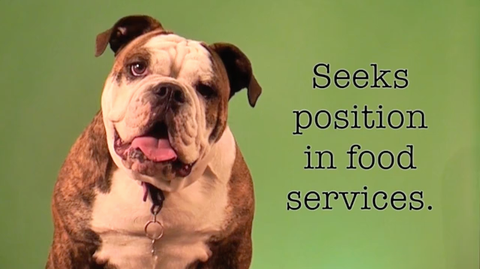14 Man Made Foods That Can Be Bad News For Your Dog

In our last blog post, we took a look at some foods in their natural form which can be bad for your pup’s health. However, as you might expect, there are a number of man-made foods which can be just as bad! Hopefully, this list will help to improve your dog’s health and reduce any bad feeding habits. Some of these are fairly well-known, but others you may not have known about!
1. Chocolate: Chocolate is probably the most well known of foods that are toxic to dogs, and for good reason. Chocolate contains caffeine, which is dangerous for your dog (see below), however, all chocolate also contains theobromine and theophylline, which can be toxic, causing panting, vomiting, diarrhea, abdominal pain, muscle tremors, irregular heart rhythm, seizures, and even death. Chocolate is a definite no-no for your dog. The largest amount of these toxins are found in the darkest chocolate and the least amount in white chocolate.
2. Dairy Products: Dairy products like milk, cheese, and yogurt in small amounts can be a nice treat for your dog, however, they can cause digestive problems which lead to gas and discomfort for your dog. This is due to dogs being lactose intolerant. Regularly feeding them dairy can lead to pancreatitis, because of the high amount of fat found in most dairy products. Hard Yak Cheese Chews from the Himalayan region of Nepal are aged to remove the lactose and are also low in fat making them ideal for dogs.
3. Alcohol: Drinks and food containing alcohol, particularly hops, are toxic to dogs, and should never be given to them under any circumstances. They cause vomiting, diarrhea, and a whole host of serious health issues, the worst of which include coma and death. The smaller your dog, the worse these effects will be on their liver and brain.

4. Caffeine: Caffeine can be fatal for dogs, and is found in a variety of products, the most common probably being coffee and chocolate. The symptoms include restlessness, fast breathing, and muscle twitches. It can cause vomiting, diarrhea, panting, excessive thirst, hyperactivity, abnormal heart rhythm, tremors, seizures, and death.
5. Xylitol: Xylitol is a sugar alcohol present in gum, candy and other food as a sugar substitute. While it isn’t harmful to humans, it is very toxic to dogs. It can cause insulin release in most species, which can cause liver failure. The increased volume of insulin can cause low blood sugar, which can lead to seizures and even death if not treated. Symptoms of this include tiredness, vomiting, and a loss of coordination. Peanut butter can actually contain Xylitol, so be sure to check the ingredients before giving it as a treat to your dog!
6. Cat Food: The protein and fat levels in cat food are too high for your dog, so make sure they stick to their own food!
7. Bacon: Bacon is another food which is very rich in fat. Eating bacon can cause a dog to develop pancreatitis, which causes the pancreas to become inflamed. Other problems to do with digestion and nutrient absorption can develop as a result of a dog eating too much bacon.
8. Fat Trimmings: Fat trimmed from meat can cause pancreatitis.
9. Spices Containing Capsaicin: Capsaicin, which is found in chili powder, paprika, and most peppers, is an irritant and will cause your dog discomfort.
10. Cooked Bones: Cooked bones are much more brittle than raw bones. While it is safer to give your dog a raw bone, a cooked bone can splinter and block or cut parts of your dog’s digestive system.
11. Bread: Dogs can eat bread, as long as there are no spices or raisins in it. However, it has no real nutritional value and will just result in your dog taking in lots of carbohydrates and calories.
12. Tobacco: Tobacco is even more dangerous for dogs than it is for humans. Nicotine can damage a pup’s digestive and nervous system, increase their heart rate, make them pass out, and even cause death.
13. Bread Dough: If your dog were to eat bread or pizza dough, it would rise inside their stomach, which could stretch their abdomen and cause serious discomfort. When the yeast ferments the dough, it can also make alcohol, which has its own negative effects.
14. Sugar: Sugary foods and drinks have the same effect on dogs as they do in humans. They can make your dog overweight, which may lead to diabetes, and can cause tooth problems.
Hopefully, this has increased your knowledge and will help to improve your dog’s long-term health. However, if you are unsure of anything, it’s always a good idea to see your local vet!







